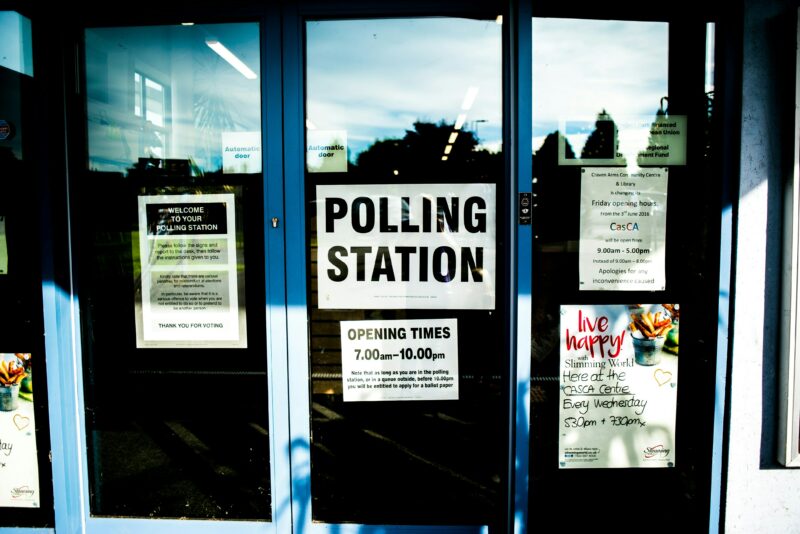Halfway through the year of elections, what have we learned?
Identifying key electoral trends from our comms & campaigns working group call

On Wednesday July 10th, our GEC Commons and Campaigns working group held a special one-off edition of our regular webinar, exploring the impact so far of the 2024 elections around the world on future sustainability and climate policies. With presenters covering recent elections in Mexico, India, South Africa, the European Union, and the UK, as well as environmental progress in Brazil, the call explored a number of trends emerging from democratic processes around the world.
More uncertainty than ever
With over 80 countries, representing about half of the world's population, holding national elections, the stakes for 2024 couldn’t be higher. Colliding with this mass mobilisation of voters is the general geopolitical instability of 2024 so far – with wars, assassination attempts, inflation, and cultural conflict all leading to deep dissatisfaction with current governments, leading to surprising electoral outcomes and a continuing sense of uncertainty.
“ This trend suggests that while the public acknowledges the importance of addressing climate change, immediate and tangible issues tend to dominate electoral decisions.”
In India, Prime Minister Narendra Modi's party failed to secure an outright majority for the first time in a decade, forcing a coalition government. Similarly, South Africa's African National Congress lost its parliamentary majority, a first since the end of apartheid.
Incumbent dissatisfaction
Another theme identified by our panellists was a pervasive sense of dissatisfaction with incumbent leaders across the globe. In the UK, the ruling Conservative Party crumbled to its worst general election result in its nearly 200-year existence, while European parties of the centre and centre-left lost significant ground to insurgent movements on the right in the recent European elections.
Meanwhile, the surprise failure of both the ruling ANC party in South Africa and the BJP in India to secure an expected parliamentary majority also points towards a general feeling of ennui amongst the electorate. These results reflect a broader global sentiment of disillusionment with current leadership, driven by economic woes, intensifying culture wars, and a general sense of hopelessness.
Climate seen as important but not a vote-winner
The 2024 elections have further highlighted a paradox in voter priorities: while climate change is recognized as a critical issue, it has not emerged as a decisive factor in winning votes. In the UK, the victorious Labour party largely sidelined climate concerns during its campaign and ran instead on a platform of competence, compassion and re-investment in social services – despite continued strong public support for climate action. Indeed, in a couple of key constituencies self-proclaimed Tory net zero sceptics lost their sea, while the Green Party nearly tripled its vote share.
Similarly, in Europe and other major regions, climate policies were often absent from campaign platforms despite voters ranking the climate crisis as a top concern, and recent reports suggest that the new caucus of EU legislators is markedly less ambitious on environment than voters’ preferences suggest. Meanwhile in Mexico, Claudia Sheinbaum won a landslide victory and became perhaps the world’s first climate scientist head of state – but ran a campaign that barely featured climate issues.
This trend suggests that while the public acknowledges the importance of addressing climate change, immediate and tangible issues tend to dominate electoral decisions. Politicians may find it challenging to effectively communicate the urgency of climate action when voters are more focused on day-to-day concerns. As a result, climate change remains a significant yet secondary issue in the political arena, reflecting a gap between long-term environmental necessity and short-term electoral priority.
A failure to fund
The 2024 elections across the globe have highlighted significant challenges in funding ambitious policies. Many governments have proposed grand initiatives, from climate action to social welfare programs, but have struggled to secure a mandate from the electorate for the necessary financial backing. In countries like India and South Africa, economic constraints and rising living costs have made it difficult for leaders to deliver on their promises, with South Africa in particular seeing a tension between arguments for energy security versus tackling energy poverty.

The European Green Deal in particular seems to be under threat thanks to this lack of a clear electoral mandate – with the results of the recent French elections and EU elections hardly delivering a ringing endorsement of proposed environmental legislation. So while the Green Deal is not going to disappear any time soon, its priorities are already changing to align more closely with the concerns of the new EU parliament – primarily security, immigration, and economic growth.
Conclusion
Thanks to all our presenters - Carlos Villaseñor, Elize Hattingh, Sofia Martinez, Shaila Sam and Jean McLean. If you’d like to join the next edition of the comms and campaigns working group webinar, do get in touch.
- Ben Martin, GEC


